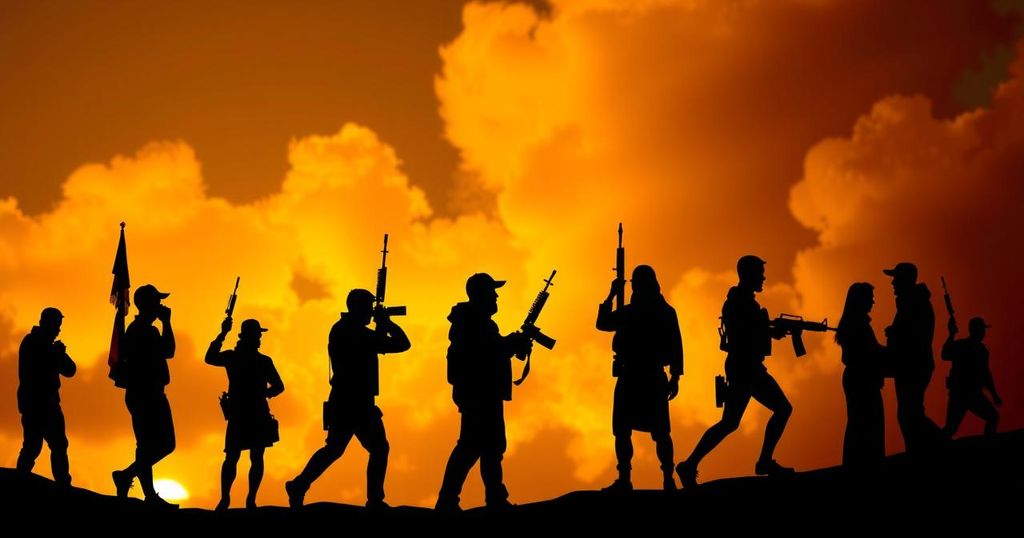The United States is urgently formulating a plan to mediate a ceasefire between Israel and Hezbollah amidst escalating tensions. Collaborating with France and other nations, U.S. officials aim to reach a diplomatic accord that would halt fighting, while also facilitating talks related to Gaza. There is support from Israeli leadership for these efforts, underscoring the seriousness of possible military incursions into Lebanon. President Biden and Secretary of State Blinken have reaffirmed their commitment to achieving a peaceful resolution conducive to the return of displaced citizens.
The United States is prioritizing efforts to forge a ceasefire between Israel and Hezbollah amid significant concerns regarding the potential for an expanded conflict in the region. According to sources acquainted with the situation, American officials are collaborating with their French counterparts, as well as officials from other nations, to craft a diplomatic solution aimed at halting hostilities along Israel’s northern border. This initiative also seeks to revive discussions regarding ceasefires and hostage negotiations pertaining to Gaza. Recent statements from Israeli military leadership indicate preparations for a potential ground incursion into Lebanon, escalating tensions. Prime Minister Benjamin Netanyahu has reportedly authorized his government to support U.S. diplomatic endeavors, contingent upon an agreement that ensures the safe return of Israeli civilians to northern Israel. Involvement from high-level U.S. officials, including senior White House adviser Amos Hochstein, has been confirmed, although it has been noted that discussions are not being held directly with Hezbollah. American diplomats are engaged in intensive consultations amidst the ongoing United Nations General Assembly meetings but have refrained from disclosing specific details of the proposed plans. On Monday, a U.S. official indicated that the administration was nearing a finalized plan designed to de-escalate tensions between Israel, Hezbollah, and Hamas, while maintaining confidentiality to safeguard delicate negotiations with multiple nations. A significant focus of this initiative may be highlighted in an emergency session of the UN Security Council, called by France for the same day. President Joe Biden referenced the potential for a ceasefire in Lebanon during an appearance on ABC’s “The View,” expressing optimism that such a resolution might facilitate broader peace discussions in the region. He stated, “There’s a way to do it… if we can deal with a ceasefire in Lebanon, that it can move into dealing with the West Bank, but we also have Gaza to deal with.” Additionally, Secretary of State Antony Blinken affirmed that the U.S. aims to develop a plan enabling displaced Israeli and Lebanese citizens to return home, emphasizing that a diplomatic agreement is preferable to military conflict.
The ongoing tensions between Israel and Hezbollah are intensified by concerns that hostilities could further expand, impacting the broader Middle East region. The United States, in conjunction with international partners, is actively seeking to mediate a ceasefire to stabilize the situation. Diplomatic efforts are particularly urgent given the potential for military escalations, as indicated by comments from Israeli military leadership. The situation is further complicated by the broader conflict involving Hamas and the humanitarian issues in Gaza, necessitating a comprehensive approach to conflict resolution in the area.
The United States is diligently pursuing a ceasefire between Israel and Hezbollah, recognizing the dire implications of an escalating conflict in the region. With collaborative diplomatic efforts underway, the priority remains to ensure the safety and return of displaced civilians while fostering conditions necessary for broader regional peace. U.S. officials, led by President Biden and Secretary Blinken, are committed to leveraging their influence to achieve a diplomatic resolution that addresses the intricacies of the conflict between multiple stakeholders.
Original Source: www.cnn.com






